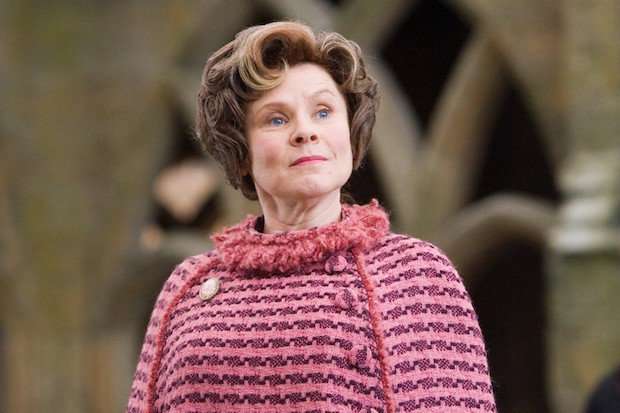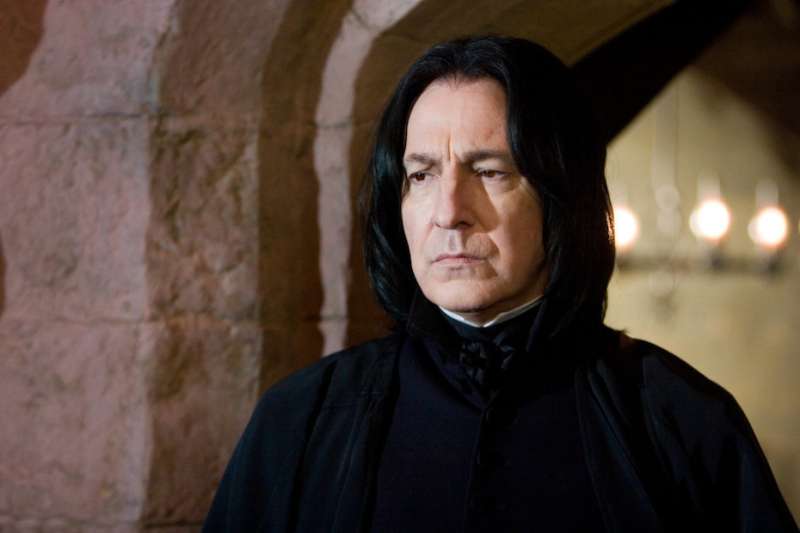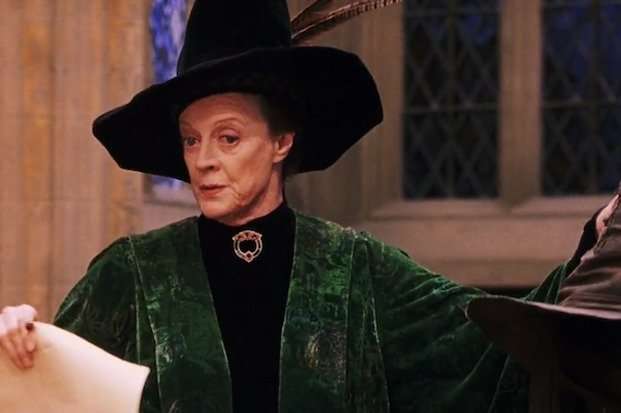A professor's study of the fictional Hogwarts faculty

Melissa C. Johnson, Ph.D., associate professor and chair of the Department of Focused Inquiry in Virginia Commonwealth University's University College, was initially skeptical of the Harry Potter phenomenon, even as her nieces and nephews eagerly ate up the first book in the series.
Still, Johnson, a fan of fantasy novels, decided to give J.K. Rowling's creation a try, though she was sure it wouldn't measure up to "Lord of the Rings." She bought the first book in the series in England and then bought each subsequent book as it was released.
"I even went and bought book seven at midnight so as to get it as soon as possible and then stayed up all night reading it," Johnson said. "I've reread the entire series at least three times and am due for another rereading."
Johnson did not just engage with the books as a reader and fan. She also approached them as a teacher and academic. One of the components that intrigued her was the eccentric roster of teachers at the venerable Hogwarts School of Witchcraft and Wizardry who marshal Harry and his peers through their studies of all manners of magic. As a fellow teacher, she wondered how well their methods would withstand close inspection.
Johnson's resulting paper, "Wands or Quills? Lessons in Pedagogy from Harry Potter," which was published in The CEA Forum, analyzed the effectiveness of the teachers running the classrooms at Hogwarts. Based on her study, Johnson determined the school's best and worst teachers. Johnson shared the highlights of her work with VCU News.
How true to life do you think Rowling's depiction of the classroom dynamic is? What did she get right and wrong?
Rowling's depiction of the classroom dynamic is exaggerated, but is likely based on her own educational experience in English schools in the 1970s and British literary depictions of boarding schools such as that in "Jane Eyre." There are actually some news stories which link teachers at the secondary school she attended, Wyedean School, with characters in the Harry Potter novels, and Wyedean also had houses, uniforms and a house-points competition for sports. Rowling was selected Head Girl there and did pretty well on her A levels, (the basis for the Nastily Exhausting Wizarding Tests in Harry Potter), but was not admitted to Oxford as she'd hoped. She's obviously interested in the power dynamics of the classroom and explores the ways in which various teachers exercise, and sometimes exploit, their power over students while others try to break this hierarchy down and meet their students on a more equal footing.
Who were Hogwarts' best teachers? What made them standouts?
All the best teachers at Hogwarts share a pedagogical approach focused on active or experiential learning coupled with a supportive, nonthreatening, cooperative learning environment in which critical thinking and risk-taking are encouraged and rewarded. Four of the very best are:

Harry Potter, Defense Against the Dark Arts through Dumbledore's Army: Has credibility, authenticity and focuses on hands-on experiential learning with low-stakes risk-taking in a playful learning environment.
Professor Remus Lupin, Defense Against the Dark Arts: Has credibility, engages in hands-on experiential learning, treats students equitably and provides positive reinforcement.
Professor Filius Flitwick, Charms: Engages students in hands-on experiential learning in a playful learning environment with positive reinforcement of student success, while also carefully measuring student progress and assigning extra practice when needed.
Professor Pomona Sprout, Herbology: Committed to creating opportunities for every student to succeed, encouragement of cooperative learning and problem-solving, and utter lack of arrogance.
I don't include Dumbledore here because he really only teaches Harry.
Who were Hogwarts' worst teachers?
Hogwarts' worst teachers fall into three general categories—those who don't engage students in active, experiential learning, but merely lecture or assign them to memorize material or techniques without engaging in critical thinking; those who are frauds of some kind; and those who actively threaten, mistreat and harm students. As she falls into all three groups, Professor, then Headmistress, Dolores Umbridge is probably the worst teacher at Hogwarts. In Dumbledore's defense, he never actually hired her.
Other notably bad teachers are:
- Professor Cuthbert Binns, History of Magic: Oblivious to students, hasn't updated his pedagogy in centuries, and delivers soporific lectures.
- Professor Severus Snape, Potions: Arrogant, punitive and practices favoritism. Doesn't encourage collaboration or critical thinking, but merely following directions and memorizing facts.
- Professor Gilderoy Lockhart, Defense Against the Dark Arts, and Professor Sybill Trelawney, Divination: Egotistical frauds and incompetent teachers who play favorites and shirk responsibility.
- Professor Alastor "Mad-Eye" Moody (Barty Crouch Jr. in disguise) and Professor Quirinus Quirrell, Defense Against the Dark Arts: Plot to murder Harry Potter and harm other students, but Moody (Crouch) actually does manage to help his students develop some skills in defense.
- Professor Firenze, Divination: Doesn't meet students where they are and doesn't believe they are capable of learning what he is teaching.

How do you differentiate between being evil and being a bad teacher?
To be evil is to engage in immoral actions which harm others, as Quirrell, Crouch disguised as Moody, and Umbridge do, but most of the bad teaching that happens in the Harry Potter books and in the real world is largely the result of ineffective approaches, undeveloped skills, lack of confidence, arrogance or ego.
Are there any teachers that particularly surprised you when you examined them more closely?
I love Professor McGonagall. She is the kind of teacher I personally respond best to and would like to be, but when I critically examined her pedagogy, I had to admit that she had significant weaknesses in terms of her impatience, lack of scaffolding in her teaching, tendency to intimidate students, and her favoritism of Gryffindor students. I was also really impressed with Professor Flitwick's results as a teacher. His students do very well on exams and they also use the skills he teaches them constantly in daily life.
Where does Hagrid fit into this discussion?
I think Hagrid is a very well-intentioned, but not a very effective teacher because he's inexperienced and he lacks training and confidence. He also fails to recognize that his perspective on magical creatures is not widely shared and that students need more reassurances about, and attention to, their safety. With some mentoring and faculty development, he could be great. He's an expert in the subject, practices active experiential learning, and he wants his students to succeed. But he needs to build his authority in the classroom and to focus on fundamental principles of effective instruction rather than moving from one extreme (hippogriffs) to the other (flobberworms).
How do the lessons the students learned outside of the classroom factor into your study of the teachers?
There are several scholars that focus on this in the books, but my approach was focused more on what was happening inside the classroom.
How would you rate the overall performance of the teachers of Hogwarts?
In general, I would say that Hogwarts is a very effective educational institution whose students not only defeat an evil wizard intent on taking over the world, but most of whom go on to success in their personal and professional lives. Not all the teachers at Hogwarts are great, but the leadership and example of Headmaster Dumbledore and Headmistress McGonagall create a culture in which students are encouraged to be just and kind, to stand up for what is right, and to seriously learn and ethically practice magic while also having fun.
More information: Melissa Carol Johnson. Wands Or Quills? Lessons In Pedagogy From Harry Potter. The CEA Forum. journals.tdl.org/ceaforum/inde … um/article/view/7061
Provided by Virginia Commonwealth University




















